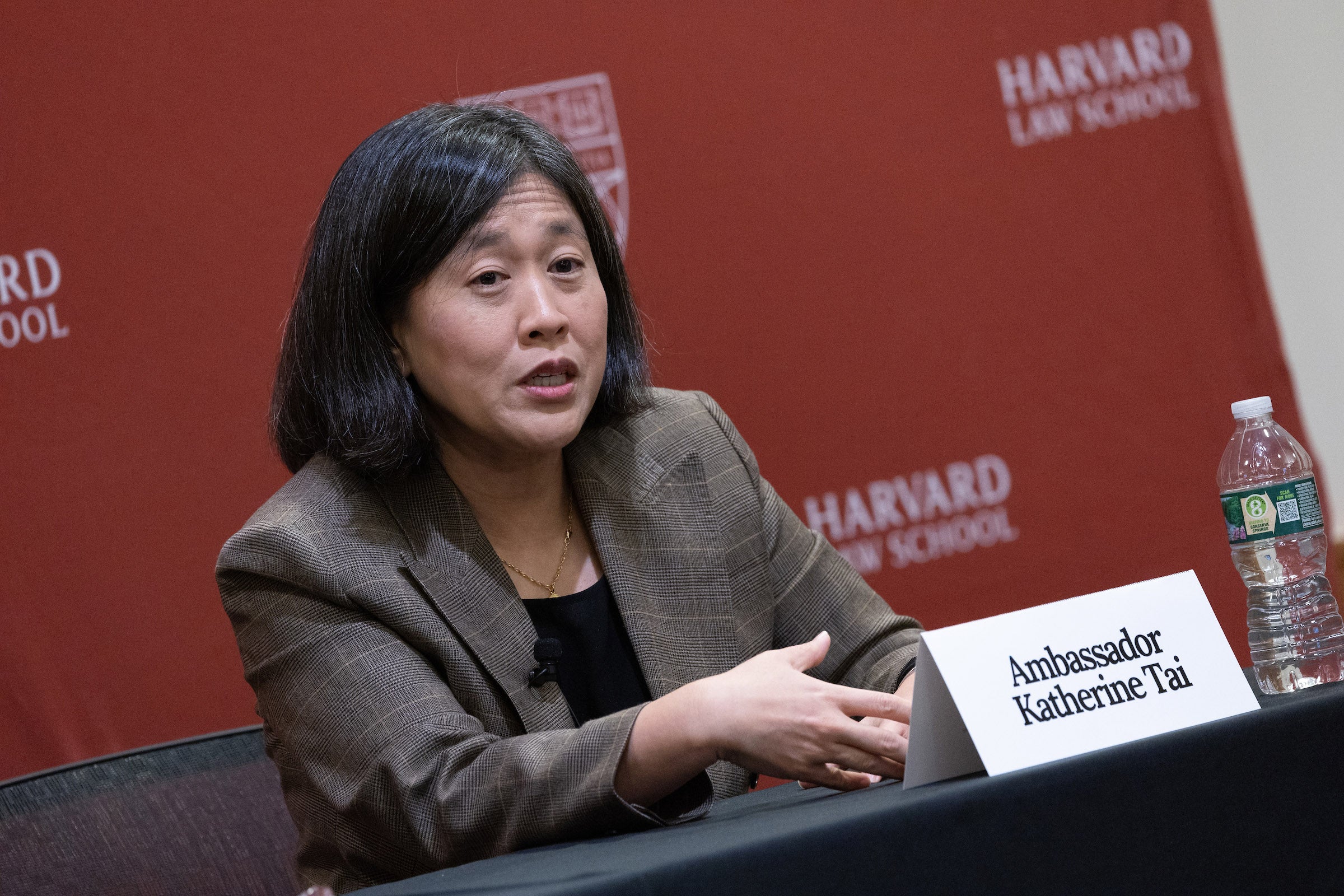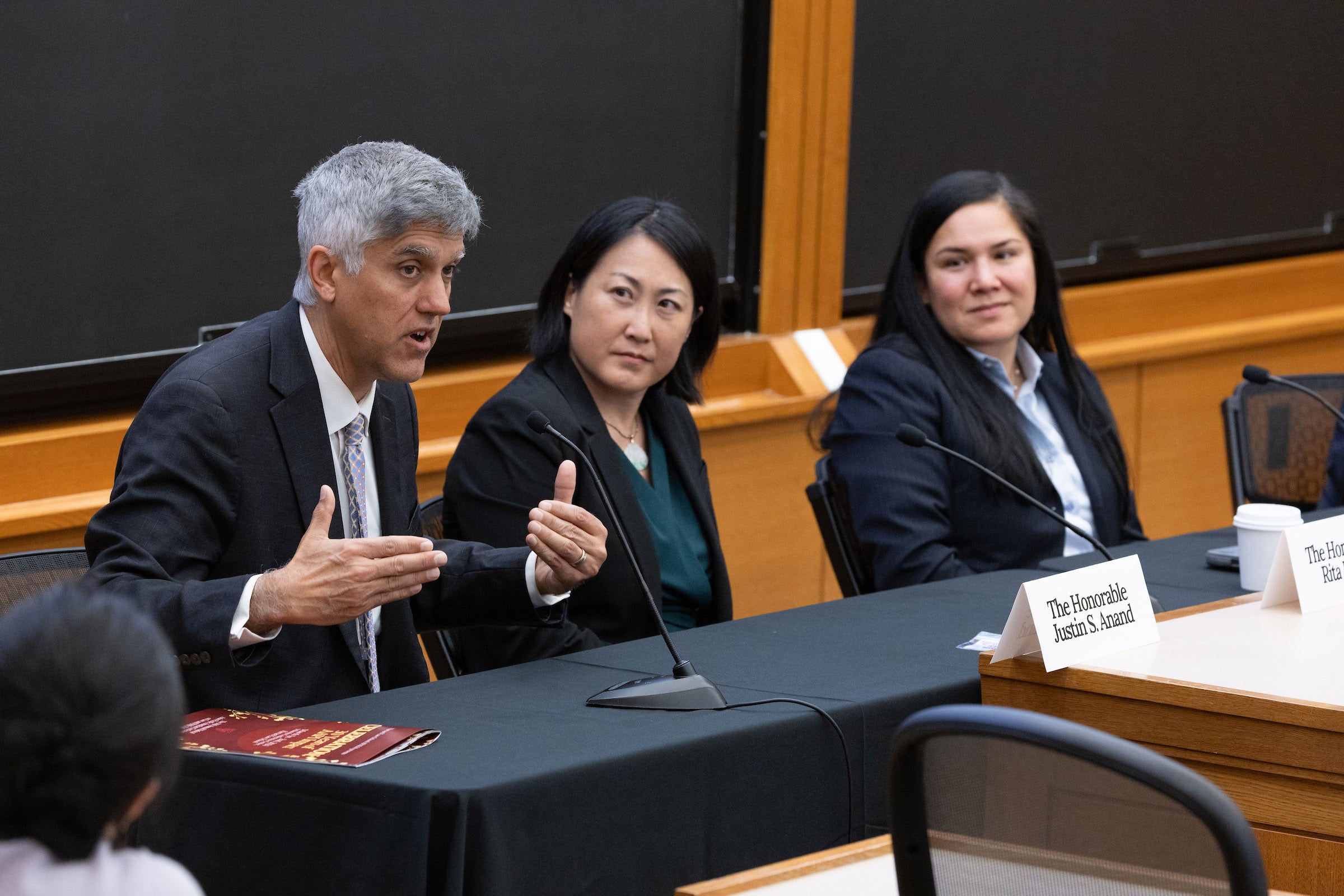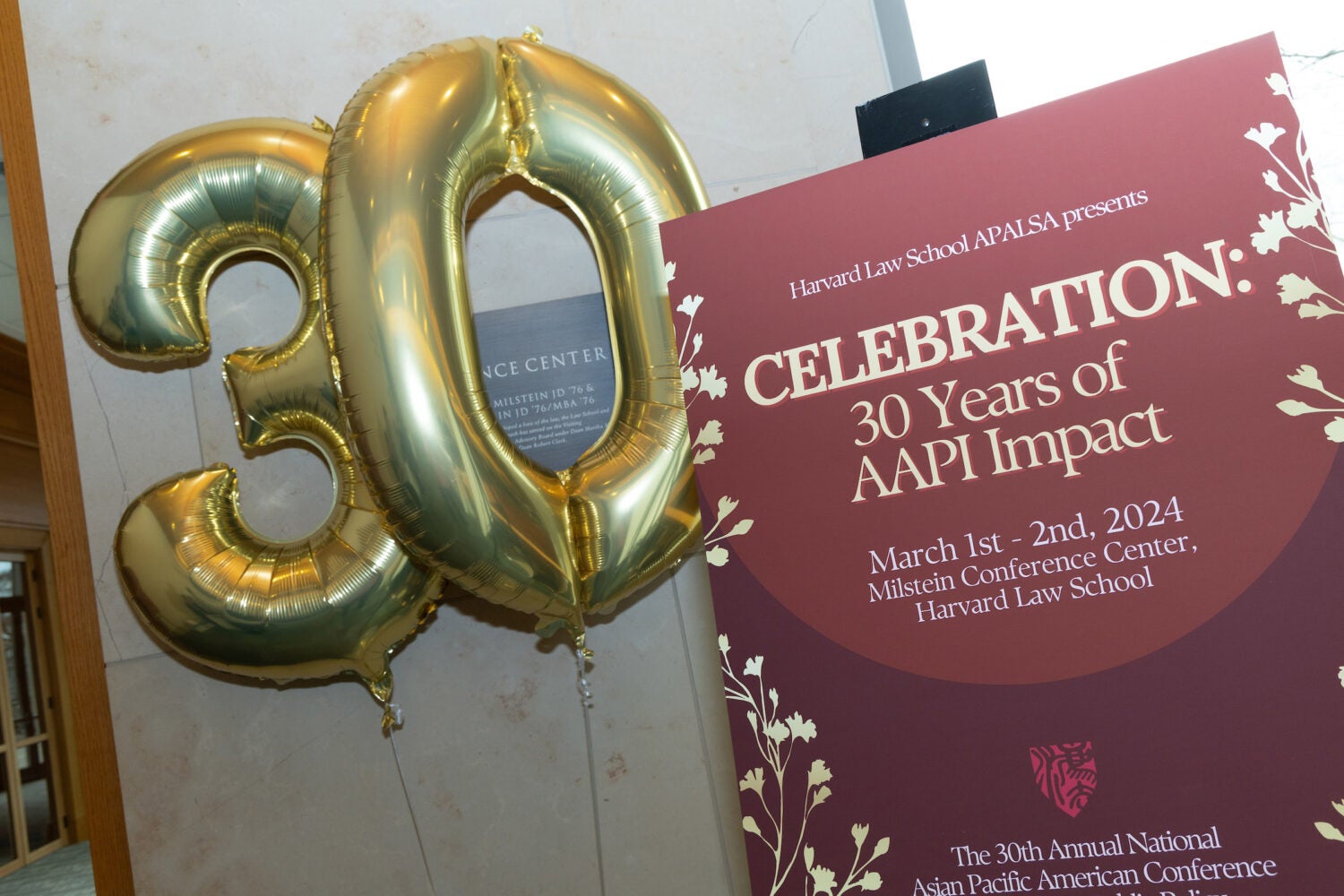Celebrating the significant gains that Asian Americans have made in the legal field over the past three decades was the focus of the 30th Annual National Asian Pacific American Conference on Law and Public Policy, held at Harvard Law School on March 1 and 2. But the event, hosted by Harvard’s Asian Pacific American Law Students Association, was also a time to take stock of the new challenges posed by xenophobia and increased anti-Asian violence.
In her keynote speech, Ambassador Katherine Tai ’01 called attention to the significance of the moment. “At the beginning of this [presidential] administration, I had the privilege and also the burden of being the only Asian American member of the regular cabinet. So, there was a tremendous sense of responsibility I felt to the country and also to the administration.”
In a conversation with Harvard Law Professor Jeannie Suk Gersen ’02, Tai noted that they had taken a law school class together and graduated one year apart. And Tai admitted that, while her experience at Harvard was without its challenges, two of her professors proved especially inspirational: Elena Kagan ’86, U.S. Supreme Court Associate Justice, and Elizabeth Warren, U.S. Senator of Massachusetts. “They were the ones who could instill positive fear: the fear that they’d call on you and you would let them down.”

She also mentioned a negotiations class as pivotal. “I can’t point out how much that one changed my life,” she said. “I found something of myself there, a class where my native skills and inclinations were rewarded better than in the case law, Socratic classroom. … My education has shaped what I’ve done in ways I wouldn’t have thought possible.”
Tai is currently the principal trade advisor, negotiator, and spokesperson on U.S. trade policy. “For Chinese American trade representatives, this is a time of very high trade tensions,” she explained. “It is also a time of high tensions around discrimination and a rise in violence against Asian Americans. All this is of a piece. It is a time of tremendous change around the world and here at home. With this comes tremendous opportunity to learn, to assert ourselves, and to find the kind of America that we want to see and the kind of world we want to hand to our children.”
“My [law school] education has shaped what I’ve done in ways I wouldn’t have thought possible.”
Katherine Tai ’01
When Gersen asked how she navigated xenophobia, Tai replied first that she’d learned to ignore ignorant social media posts. “As a trade representative it’s important to stick with facts and evidence — and to know what the hell you’re talking about,” she said. “When you’re dealing with actual facts, you can dismiss where a conversation has gone off the rails. If you can’t do that you would be a very bad negotiator. We have taken positions on digital that have gotten blowback from the trade industry. They said it’s a surrender of U.S. trade and digital policy to China. And there is definitely a race element to that. It is fraught, but there is so much in our world right now that is fraught.”
Tai characterized the year prior to her appointment as “deeply traumatic” for the country. “It was the year we watched George Floyd being murdered by police,” she said. “We saw the protests on Lafayette Square. And we saw that the pandemic had disproportionately affected different parts of our society.”
This, she said, influenced the Biden administration to rebuild trade policy around workers rather than companies. “Based on data that we have, we can quantitatively see that U.S. trade policies have least benefitted people of color, women of color, and non-college educated white men. So, we had the confirmation we needed to send the message back to our political brethren, that we need to do better at identifying underserved communities. That has been one of the most important areas we engage in — to let people know we see them and that we want to bend U.S. trade policy to serve the little guy.”

In a later panel, “Trailblazing in the Judiciary,” three distinguished judges talked about being the first Asian Americans to serve in their districts. The Hon. Justin S. Anand ’98, magistrate judge for the Northern District of Georgia, said that this lack of representation was a motivating factor. “In the entire Deep South, I saw no Asian American judges at all,” Anand said. “And once I had the opportunity, knowing there had to be a change made it easier to go forward. Lack of role models may be inhibiting, but it’s also an advantage for many folks. Especially when you have a community that is now so focused on promoting its members.”
The Hon. Rita F. Lin ’03, district judge for the Northern District of California, said she was motivated to seek the bench after working in a law firm and taking a pro bono case on behalf of the first government employee to win health benefits for her same-sex spouse. “Later that year it was Christmas, and the office was deserted,” Lin recalled. “I was reading the decision and looking at the Christmas card my client sent me. And I just started crying and saying, ‘I want to feel like this all the time.’ And let me be clear, I do not feel like that every day. But it was a transformative moment.”
The Hon. Kesha Tanabe, bankruptcy judge for the District of Minnesota, said that her perspective was shaped by knowing that her grandparents had been forced into an internment camp by the U.S. government during World War II. “We apply the law neutrally, but it didn’t seem very neutral to me when I was growing up,” Tanabe said. “Asian Americans have been on the receiving end of the law for so long that converting ourselves into litigants and subjects seemed important.”
Surveying the largely Asian American audience at the Harvard Law School event, she said, “This is unimaginable to my undergraduate law self. When I went to law school, we could all sit around one table. So, I hope you understand that this is quite radical to me.”
Want to stay up to date with Harvard Law Today? Sign up for our weekly newsletter.
